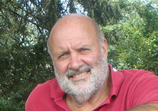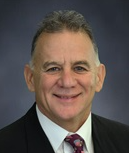This video has been prepared for The Collaborative for Spirituality in Education, Teachers College of Columbia U. in NYC (2022)
Intended audience: Students interested in counseling, teaching, psychology, spiritual healing, leadership.
Instructors: John Bickart, Ph.D., Raymond Bock
Prerequisites: none
Web Page: https://www.bickart.org/
Recommended Reading: The Next Version of You, Bickart's Just-in-Time Fables
Both John Bickart and Raymond Bock have worked with adults and children who were depressed and exhibited destructive behaviors. They have witnessed these dysfunctions in outward expressions of cutting, escaping through drug use, criminal activity, and suicide. Spiritual practices that cause a recovery - in their experience - come from a reintegration of the childlike ability to perceive a situation as useful as opposed to simply good vs. bad.
Workshop Description: Finding oneself requires a reintegration of childhood in adulthood. We must be careful here not to fill students with theory and intellectual jargon. Rather, we need to practice real-life, simple exercises every day in order to recover our world by recovering our self. Recent studies show that this integration is a physiological / psychological act of brain integration that is vertical: body, brainstem, limbic areas, and cortex (Hart, 2001, 2010, 2014a, 2014b; L. Miller, 2015; L. W. E. S. Miller, 2021; Siegel, 2010, 2018), and horizontal: intuitive, right brain and analytical left brain (McGilchrist, 2009; Siegel, 2010). But studies aside, the actual reintegration of childhood in adulthood is a recovery that is spiritual and down to earth. One way to ward off depression or destructive behavior and move toward growth is to spiritually know oneself more fully. Spiritual knowing involves:
Instructors: John Bickart, Ph.D., Raymond Bock
Prerequisites: none
Web Page: https://www.bickart.org/
Recommended Reading: The Next Version of You, Bickart's Just-in-Time Fables
Both John Bickart and Raymond Bock have worked with adults and children who were depressed and exhibited destructive behaviors. They have witnessed these dysfunctions in outward expressions of cutting, escaping through drug use, criminal activity, and suicide. Spiritual practices that cause a recovery - in their experience - come from a reintegration of the childlike ability to perceive a situation as useful as opposed to simply good vs. bad.
Workshop Description: Finding oneself requires a reintegration of childhood in adulthood. We must be careful here not to fill students with theory and intellectual jargon. Rather, we need to practice real-life, simple exercises every day in order to recover our world by recovering our self. Recent studies show that this integration is a physiological / psychological act of brain integration that is vertical: body, brainstem, limbic areas, and cortex (Hart, 2001, 2010, 2014a, 2014b; L. Miller, 2015; L. W. E. S. Miller, 2021; Siegel, 2010, 2018), and horizontal: intuitive, right brain and analytical left brain (McGilchrist, 2009; Siegel, 2010). But studies aside, the actual reintegration of childhood in adulthood is a recovery that is spiritual and down to earth. One way to ward off depression or destructive behavior and move toward growth is to spiritually know oneself more fully. Spiritual knowing involves:
- Reawakening the child in the adult. Exercise: recover the ability to see work and play as one.
- Heart Thought - using the "quest orientation" (L. W. E. S. Miller, 2021, p. 169). Exercise: catch yourself several times a day with "doubts and downers" and look for life's deeper messages.
- Teach yourself to create practical exercises from ancient wisdom teaching. Exercise: Seeing humankind as a child in the Tao Te Ching (Laozi, 2005/circa 500 BC).
Bios for the Workshop:
|
John is an over half century veteran teacher of both children and adults. He offers spiritual opportunities that he has presented over the last 50 years in business settings, public and private schools, and prisons. He has worked in the background up until the last two years, usually affecting only a small group or even one individual at a time. Like many others at this time, he has 'come out to the public' and become a workshop presenter to bring practical, spiritual opportunities to the mainstream.
|
|
Ray's passion has been working with students whose needs cannot be met in a traditional public school setting. The students Ray has been drawn to have suffered from severe emotional and behavioral challenges who are often burdened with learning disabilities, psychiatric instability and traumatic life experiences that result in those children and adolescents often feeling left out, alone and marginalized by society. His passion includes supporting the staff who require tremendous dedication, courage, patience, flexibility and love for those in greatest need. He believes that one of the critical keys to uncovering the greatness in these youth is to help them smile, laugh and recover their own childhood fascination and love of themselves and the world. The chance to see their lives transformed, obstacles overcome and their brilliance, resiliency and creative talents buried deep within uncovered is one of life's greatest pleasures.
Ray’s experience includes 8 years as a self contained classroom teacher and over 35 years as a school leader including 30 plus years as an alternative school principal. Ray was chairperson of the program development committee for private special education schools in NJ for over 20 years. He’s been a keynote speaker at gatherings sponsored by the Sisters of the Good Shepherd in Montreal and Philadelphia and assisted on the planning committee for spiritual retreats for educators and mental health professionals in Detroit, Michigan and Angers, France. |
Literature Review:
- Wisdom Teaching and Practical Exercises (Laozi, 2005/circa 500 BC)
- Childhood & Spirituality (Hart, 2001, 2010, 2014a, 2014b; L. Miller, 2015; L. W. E. S. Miller, 2021)
- Awareness and Mindsight (Siegel, 2010, 2018)
- Mindfulness and Nondual Awareness (Chopra, 2021; Chopra, Ford, & Williamson, 2010; Lantieri, 2008; Palmer, 1993, 1998, 2004; Palmer, Zajonc, & Scribner, 2010)
- Emotional and Social Intelligence, Presence (Goleman & Boutsikaris, 2006; Goleman & Senge, 2007; Goleman & Whitener, 2005; Senge, 2000, 2008)
- Belief (Dispenza, 2017; Dispenza & Boyce, 2016; Dispenza, Knight, & Encephalon, 2005; B. H. Lipton, 2005, 2006, 2014; B. H. Lipton, Bhaerman, S., 2009)
- Left Brain Dominance (McGilchrist, 2009)
- Early Opposition to the Mechanical View of Humans (Dewey, 1910, 1916/2005)
- Historically Assumed Separateness (Kuhn, 2004)
- Reduced Importance of Childhood (Piaget, 1929/2007, 1950, 1959, 1965, 1973, 1976; Piaget & Inhelder, 1969; Piaget & Valsiner, 1927/2001)
- Excessive Testing (Darling-Hammond, 2010; González & Darling-Hammond, 1997; Gurwitz, Darling-Hammond, Pease, Education., & Corporation., 1981; Haggstrom, Darling-Hammond, Grissmer, & Center for the Study of the Teaching Profession (Rand Corporation), 1988; Koppich, Merseth, Darling-Hammond, American Association of Colleges for Teacher Education., & National Commission on Teaching & America's Future (U.S.), 2000; Millman & Darling-Hammond, 1990; Wise, Darling-Hammond, Berry, Profession., & Education, 1987; Wise, Darling-Hammond, & Klein, 1986; Zeichner et al., 2000)
- Education: Students-only, Community-centered, Right Answers, Restricted Resources, Not tests, Not algebra, Not control, Not norms, Brick & Mortar Schools, Integrated Disciplines, Inspirational Content (Dintersmith, 2018; Hart, 2001)
- 1800s Factory Model (Skinner, 1953; Thorndike, 1913/2010)








